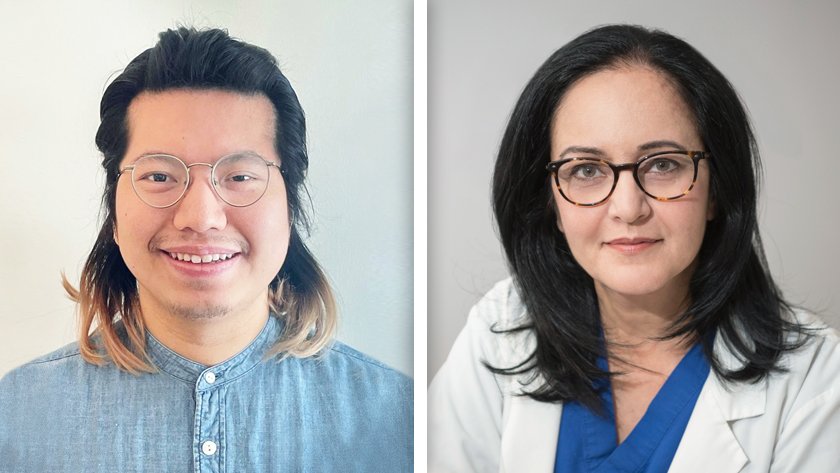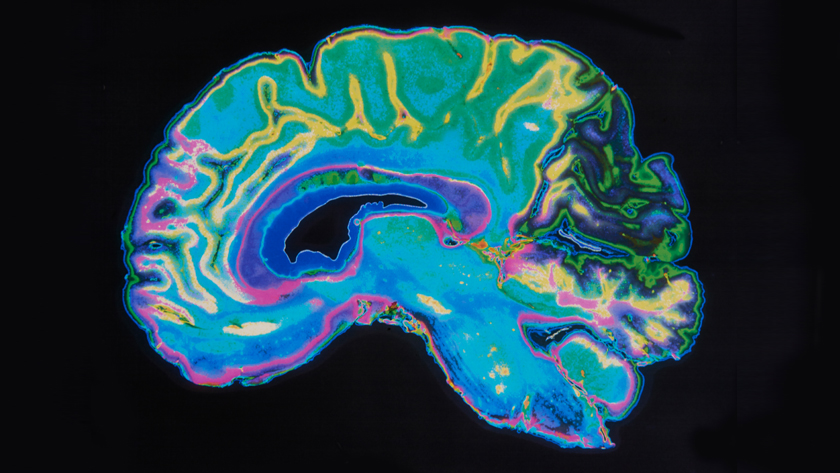
Researchers at the Krembil Brain Institute have used artificial intelligence (AI) approaches to create a brain age calculator to explore the effects of chronic pain conditions on brain aging.
The findings, published recently in the journal PAIN, show that the effects of chronic pain on brain aging vary according to the underlying condition. They also found that women living with chronic pain are most at risk for accelerated brain aging.
The team’s approach relied on recent technological advancements that have revolutionized how researchers study brain aging. “We used AI to analyze magnetic resonance imaging (MRI) scans of the brains of 959 individuals. Using this approach, we developed an algorithm that can calculate an individual’s brain age from their brain structure with very good accuracy,” says Dr. Mojgan Hodaie, Krembil Senior Scientist and senior author of the study.
Traumatic brain injury and diseases such as HIV and Down syndrome have been linked to accelerated brain aging; however, previous research studying accelerated brain aging in chronic pain has turned up conflicting results, as they mainly used mixed populations who had different types of chronic pain.
“In this study, we aimed to overcome the limitations of previous studies, which have not factored in patients’ specific pain conditions. Importantly, previous studies have also not accounted for sex—an important factor in pain research because chronic pain is more common and severe in women than men,” adds Dr. Hodaie.
The research team looked at three chronic pain disorders: trigeminal neuralgia—a debilitating condition that causes extreme pain in one side of the face; osteoarthritis and chronic low-back pain.
The team discovered that trigeminal neuralgia patients have significantly accelerated brain aging—on average over 10 years older than healthy controls. With respect to sex, females experienced accelerated brain aging in response to all chronic pain conditions tested, whereas men only experienced accelerated brain aging with the diagnosis of osteoarthritis. Brains also aged differently, with trigeminal neuralgia and osteoarthritis being linked to more rapid aging than chronic low-back pain.
A surprising finding in this study is that trigeminal neuralgia patients who had “older brains” were more likely to benefit from Gamma Knife radiosurgery. Based on this observation, pre-treatment brain age can serve to separate future responders from non-responders to surgical treatment.
Dr. Hodaie concludes, “Our findings reveal a more nuanced view of the relationship between chronic pain, existing therapies, sex and brain changes. Defining brain age in individuals living with chronic pain could hold the key to unlocking better, more targeted treatment approaches—and help ensure that those who will benefit get the treatment they need.”
This study was supported by the Canadian Institutes of Health Research and the UHN Foundation. Dr. Mojgan Hodaie is a Professor in the Department of Surgery at the University of Toronto, and Surgical co-Director of the Joey and Toby Tanenbaum Family Gamma Knife Centre at the Toronto Western Hospital.
Hung PS, Zhang JY, Noorani A, Walker MR, Huang M, Zhang JW, Laperriere N, Rudzicz F, Hodaie M. Differential expression of a brain aging biomarker across discrete chronic pain disorders. Pain. 2022 Feb 23. doi: 10.1097/j.pain.0000000000002613.

Magnetic resonance imaging of a brain, revealing structural features (false colouring applied). Chronic pain has been linked to abnormalities in the cortex, which lines the outermost layer of the brain.




